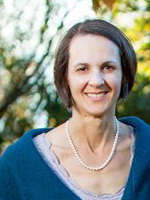Researchers at the Faculty of Medicine and BC Children’s Hospital have reassuring news for parents and caregivers: Within four months of an injury, most children have recuperated and enjoy the same quality of life they did before they got hurt.
The researchers followed children treated for injuries at BC Children’s Hospital for one year and found even children with severe injuries had largely returned to their pre-injury quality of life within four months. Very few of the children showed signs of post-traumatic stress disorder.
“Understandably, many parents worry about the long-term impact of injuries on a child’s wellbeing. Our research has good news. Children are resilient and rebound quickly from injuries, even serious ones,” says Mariana Brussoni, the senior author of the study in Health and Quality of Life Outcomes, and an Associate Professor in the Department of Pediatrics and School of Population and Public Health.
The study included 204 children and infants ages 0 to 16 treated at BC Children’s Hospital for unintentional injuries ranging from cuts and broken bones to major trauma that required hospitalization. Children and their caregivers completed surveys at the time of treatment and at one, four to six, and 12 months post injury. These surveys measured health related quality of life (HRQoL), a holistic measure of wellbeing that encompasses physical, psychological and social aspects of health. The survey completed at the time of the injury served as a baseline measure of the child’s HRQoL before the injury occurred.
The researchers found that at four months post-injury, most children’s overall HRQoL score had returned to its baseline level. At one month post-injury, older children and children who were admitted into the hospital had lower HRQoL scores compared to other children in the study; however, these children recovered at a faster rate, and at the four month follow-up their HRQoL scores were comparable to younger children and children who were treated in the emergency room and released.
In Canada, more than 207,000 children are hospitalized for unintentional injuries every year and more than 3.3 million are treated in emergency departments. This work provides reassurance to families and doctors who may worry about the lasting effects of an injury on a child’s emotional health and quality of life.
This study can also inform the debate about the trade-off between the risks and benefits of a physically active lifestyle for children. “Serious injuries from physical and leisure activities are relatively rare,” says Dr. Brussoni, an investigator at BC Children’s Hospital and an academic scientist at the BC Injury Research & Prevention Unit. “This research shows that even when children do get injured, they recover quickly. Parents and caregivers should be aware of the possibility of injury and take steps to prevent unnecessary risks, but they need not place excessive limitations on a child’s activities or feel guilty when an injury does occur.”
